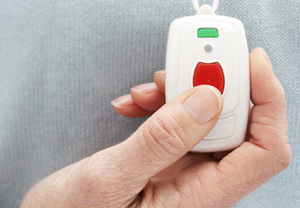Social Care Advice Archive

Yourcarehome.co.uk will supply reviews to NHS Choices following initiative announced today by Norman Lamb, Minister for Care and Support – Yourcarehome.co.uk believes strongly that by bringing quality peer reviews to social care, we can significantly improve the quality and public perception of care in the UK.
25/4/13 - general

Settling in to a Care Home – Moving into a care home is a life-changing experience. Christine Michael, whose mother is currently a care home resident, offers these tips on settling in. For someone who has been living independently in his or her own home, adjusting to life in a care home can be a real shock. It may be that there is no alternative, because it would simply be unsafe or impractical to stay at home any longer – and for many people, there will be a sense of relief that they no longer have to worry about getting their own meals, or what to do if they need help at night.
23/4/13 - general

Preventing Falls for the Elderly – Top tips on how to avoid falls and a checklist to ensure your surroundings are as safe as possible... The Falls reduction project is run by East Lancashire NHS. The aim of the project is to reduce the number of falls in older people which result in serious injury or fracture and ensure effective treatment and rehabilitation for those who have fallen.
12 April 2013 - Health

Moving into a Care Home from Hospital – Many older people being discharged from hospital will have a local council care assessment. This is to decide if you can get help to return to your own home, or whether your needs can be best met in a care home. The hospital staff should contact social services and arrange this for you, if it looks like you still need help and care.
12/4/13 - general

What Is A Living Will? – A Living Will may be appropriate if you care for someone who has a degenerative disease - perhaps dementia or another neurological disorder like Multiple Sclerosis. It can offer them the chance to remain in charge of medical treatment at a future date, when they can no longer communicate their wishes. Alternatively, perhaps you care for an elderly relative who would like to retain the right to make decisions with regard to medical treatment even if they were to fall ill and no longer have the mental capacity to make rational decisions.
12/4/13 - Legal & Financial

Do I need to update my will? – Thousands of wills could need updating as rising care and nursing fees force the elderly to sell their assets to pay for care, warns the Law Society.
21/5/08 - Legal & Financial

What is the difference between enduring and lasting powers of attorney? – What is a Power of Attorney? Giving Power of Attorney is legally allowing someone you appoint to make financial decisions on your behalf such as selling your house or managing your bank account if you become incapable of making these kind of decisions yourself - or do not wish to do so.
18/1/09 - Legal & Financial

Selling your home and moving into a Care Home – Sometimes, moving into care can involve having to sell your home. Robert Dolbear from Bridgefast Property Services writes for yourcarehome.co.uk about the practicalities involved...
12/4/13 - general

What benefits are available to help with my care? – Andrew Dixson-Smith, financial expert for yourcarehome.co.uk and Director of Care Fees Investment answers your questions about benefits
Andrew Dixson-Smith, 12/4/13 - Legal & Financial

All you need to know about Funding your Care – Do you or your relative need care and you are unsure about how it will be paid for or what you are entitled to? Andrew Dixson-Smith, financial expert for yourcarehome.co.uk and Director of Casesenior.co.uk provides a summary...
Andrew Dixson-Smith, 12/4/13 - Legal & Financial

What is a Deputy? – In the summer of 2011 Professional Deputies was approached by a local authority who had received a referral for a gentleman who was suffering from advanced dementia and as a result had been targeted by fraudsters in the past. Mr P had no family or friends who could assist him with handling his financial affairs, and as a result of his advanced dementia it had been determined that he no longer had the capacity to manage his own financial affairs.
12 April 2013 - Legal & Financial

Care Home Fees and Paying for Care – The cost of living in a care home varies greatly according to type of care home, your care needs, geographical area and so on. It has been estimated that living in an average care home costs around £36,000 each year, although the figure is thought to be closer to £50,000 per year for a care home in the south.
Author: Mark Sadler, 12 April 2013 - Legal & Financial

Tips & Advice For Caring for a Parent – The relationship between a parent and child is quite particular. As a general rule your parents are the first people with whom you build a relationship and during childhood, they care for your welfare. At that time, authority in the relationship is heavily balanced towards the parent.
12/4/13 - general

How Do I Complain About A Care Home? – If you are unhappy with the care that is being provided by a care home, who should you talk to? We have information for you from both the government's Regulator and the Ombudsman.
1/4/12 - general

The First Step - Getting a Care Assessment – If you feel that you need more help at home, or more support to help with daily tasks, a Health and Social care assessment is the first step towards getting the help you need. Often called an “Assessment of Need” or a “Care Assessment”, they are organised through the Social Services department of your local council. Services you may need can include healthcare, help in the home or residential care.
4 April 2013 - general

The Role of Social Services – If you need more help and support at home, or are considering moving to sheltered accommodation or a care home, you should contact your local social services department who will organise a care assessment to identify the type of care that you need. You have the right to a care assessment no matter what your ability to pay for the care you might need.
4 April 2013 - general

Staying Independent - Care in my Own Home – Many of us want to live independently in our own home for as long as possible, but may be in a position where we need a little help. There are many options available depending on the type of help you need, from assistance with the garden and Meals on Wheels through to a live-in nursing carer.
4 April 2013 - Staying Independent

Staying Independent - Adaptations to Your Home – If you have chosen to live in your own home, there are many types of specialist equipment or adaptations to your home that can be made to make it easier to live independently. Your care manager should be able to advise you about what is suitable for your situation as part of your care assessment. They will also be able to advise on which costs are likely to be paid for by social services. Sometimes, local councils provide assistance such as low cost loans or grants to help renovate, repair or adapt your home.
4 April 2013 - Staying Independent

Staying Independent – Telecare and Telehealth – Telecare and Telehealth are both technology-based system which can help you to live independently by alerting a response centre or a carer if there is a problem in the home or a problem with the health of an individual. These systems are designed not to replace a carer, but to allow peace of mind if a carer cannot be present. They differ from personal alarms, in that the receiver of the alarm does not need to be in the vicinity and can be a trained professional such as a a health professional or part of a response team.
4 April 2013 - Staying Independent

Staying Independent – Personal Alarms – What are personal alarms? Personal alarms help to provide peace of mind for you and your carer whilst supporting independent living. They differ from Telecare systems because they do not alert a response centre, but instead directly alert a carer in the home or nearby or neighbour. Some need operating by the person being cared for, such as a portable alarm, and some are operated using sensors, such as a movement alarm or a wandering alarm.
4 April 2013 - Staying Independent

Staying Independent – Occupational Therapy – How can an Occupational Therapist help? If you have decided that you need a little extra help with day to day living but want to remain in your own home, visits from an Occupational Therapist may be an option. Occupational therapy aims to support and promote people’s health through their day to day activities, identifying problem areas which you may have in your everyday life, such as dressing and will help you to work out a solution. An occupational therapist will allow you to regain or improve your independence by using techniques to improve your abilities or by changing the equipment you are using.
4 April 2013 - Staying Independent

Care Options - Respite Care – If you or your carer feels in need of a break, respite care can be a good option. Respite care is a temporary stay in a care home for you or you and your carer, or the temporary employment of a professional carer to come into your home. Respite care can provide extra levels of care while you recover from an illness or a stay in hospital and can also be a an opportunity to get to know a particular care home, if you are thinking of moving into one in the future.
4 April 2013 - Care Options

Care Options - Retirement Villages – What is a Retirement Village? Retirement Villages, also known as retirement communities or care villages are relatively new to the UK but are growing quickly, offering a variety of housing types, an extended range of facilities for older people, and attractive settings. Retirement Villages are generally large developments consisting of individual properties which are available to buy, rent or part own. The villages offer independent flats or bungalows, with central leisure facilities such as shops, swimming pools and restaurants. Depending on the provision of the individual village, residents can buy additional care provision as and when they need it, from meals to 24 hour nursing or dementia care.
4 April 2013 - Care Options

Care Options - Sheltered Housing – What is Sheltered Housing? Sheltered Housing, also known as Retirement Housing or Warden-Assisted Housing is a term used to describe housing intended specifically for older people. The housing is usually part of a collection or “scheme” of 20 to 40 self contained flats or small bungalows where there is almost always an alarm system for the resident to use in case of emergency. Sheltered housing is usually designed with good levels of heating, and increasingly with doorways wide enough for walking frames and wheelchairs. Traditionally, a warden has lived on site, but this is becoming less common. Often, the scheme manager (warden is a term which is now felt to be out of date) lives off site, or the service is provided as 'floating support', with periodic visits from a member of staff. Some schemes have guest rooms that can be rented out if family or friends want to visit you.
4 April 2013 - Care Options

Care Options - Extra Care Housing – What is Extra Care Housing? Extra Care Housing is similar to Sheltered Housing in that is consists of a scheme of flats or small bungalows in one site which are specifically for use by the elderly. However, Extra Care Housing provides additional care services that are not available in Sheltered Housing. There are care staff available 24 hours a day, and so a resident could live in their own flat with all the independence that offers yet arrange for someone to help with getting up, dressing, bathing etc. Usually, meals will be provided in a communal dining room, and there will be other communal areas such as lounges and gardens. Some offer wider communal areas, but these are more likely to be Retirement Villages which also provide Extra Care facilities.
4 April 2013 - Care Options



